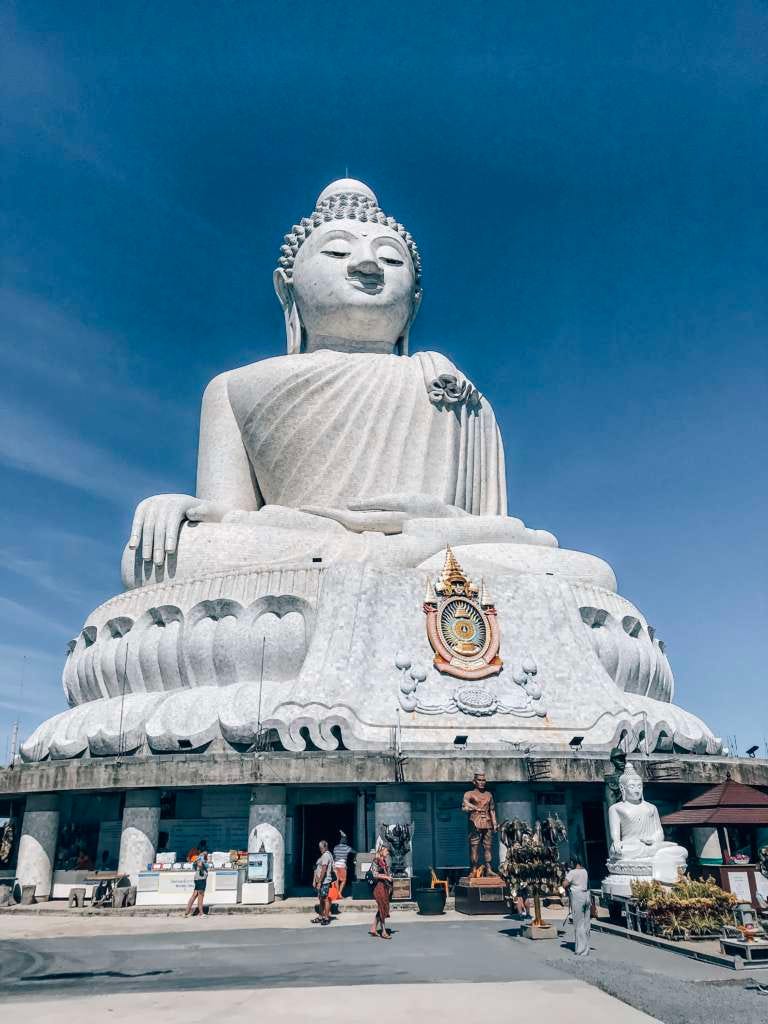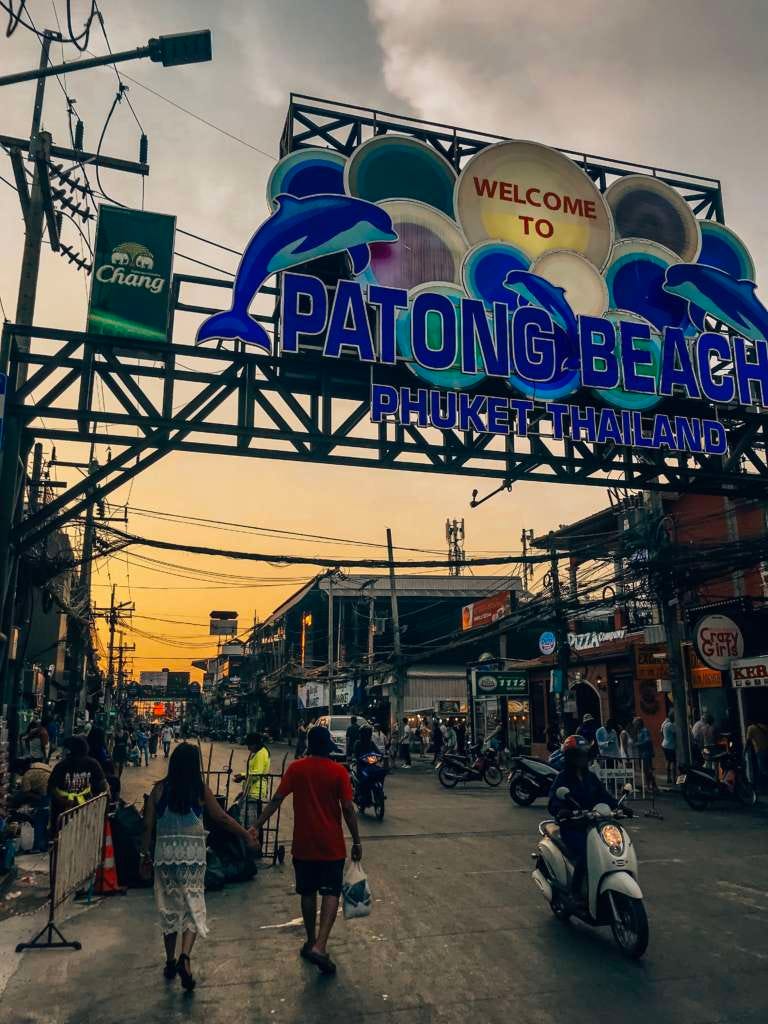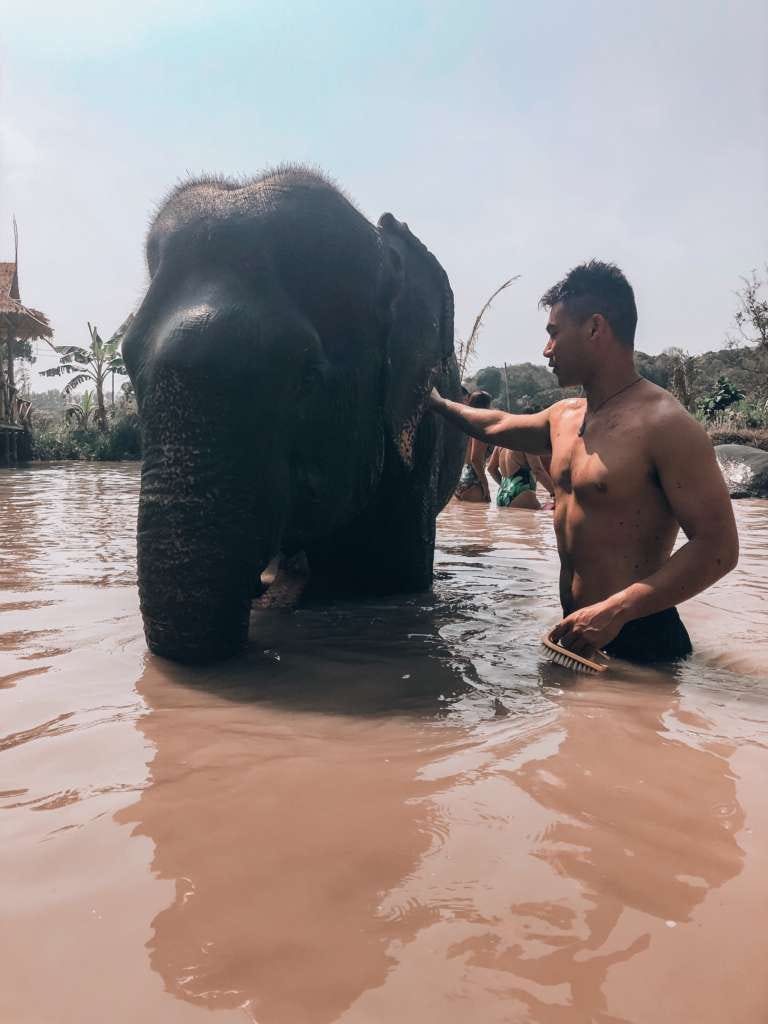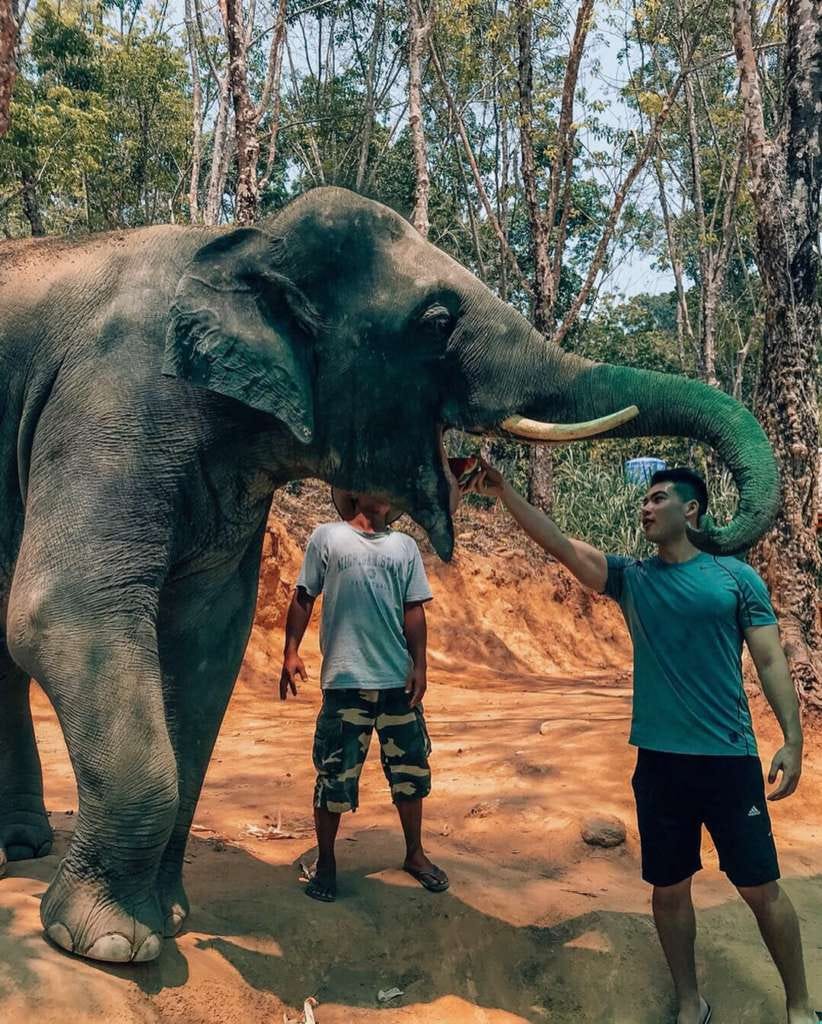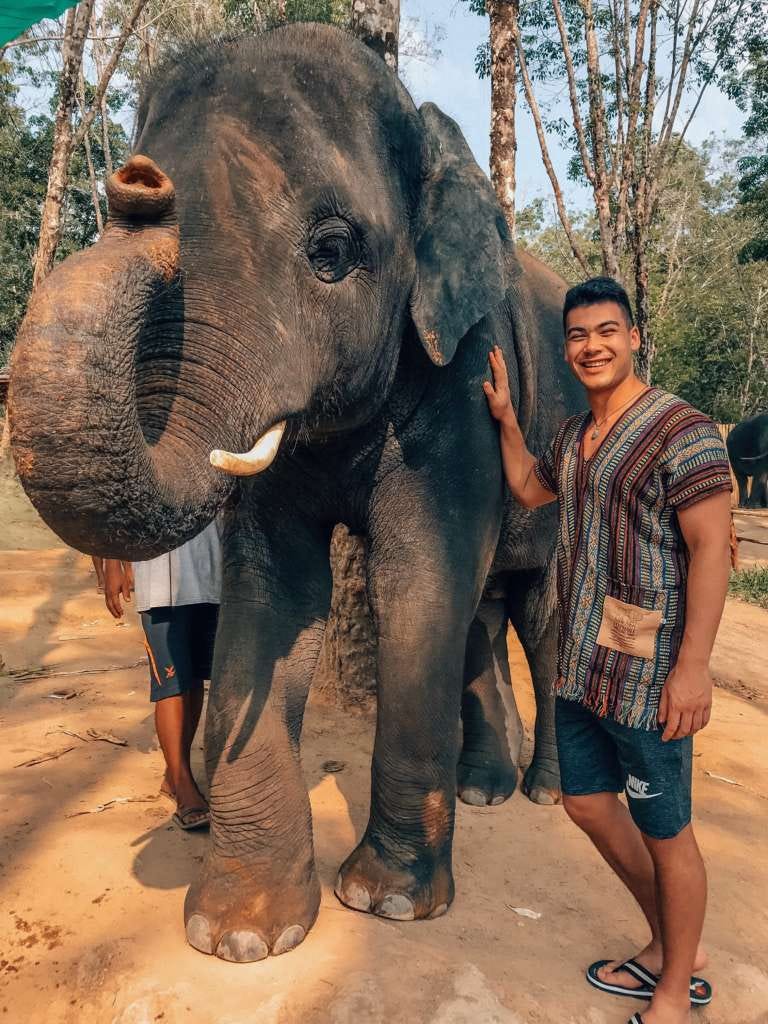Phuket: Elephants and Alcohol
I arrived in Phuket, Thailand without plans or expectations. I had no idea I was entering one of the party capitals of Asia.
The airport bus driver insisted on squeezing two people per seat to fit more people in his caravan. The mid-day heat joined us in the car, disregarding the cheap air conditioning like a bad pun. Shoulder to shoulder, we formed a sweaty menagerie of ethnicities. I heard an Australian accent, some Korean and Japanese, whispers of Chinese, some Thai.
The road from the airport was just wide enough for one car in one direction. Instead, it became the stage for a precarious, winding dance of two-way traffic. Car mirrors missed each other by inches. Everything on the road happened at full speed, yet my bus driver appeared lazy and disinterested. He wore headphones and texted with one hand—such is life on an island.
I stayed in Patong Beach, the most popular district in Phuket for travelers. After four days, I carried a new understanding of the word “party.” The coastal getaway is a microcosm of lawlessness, a land of promiscuity and alcohol inhabited primarily by out-of-towners. Everyone has matching, oversized backpacks and the need for a shower.
The main strip, Bangla Road, holds the popular bars, clubs, and food choices. It is a nightly jamboree of backpackers, strippers, prostitutes, and drunkards. Because of the restaurants and beach, families clamor to Bangla Road despite the vice. Children walk amidst transgressions, frequenting the same food-and-drink scene as the intoxicated and unchaste.
Strippers dance on the tables, visible to onlooking children who innocently came out for a family dinner. Some vendors sold shots of alcohol in sets of eight or ten, overturning the “quality over quantity” axiom as if the alcohol was expiring the next day.
Bangla Road is closed to vehicles after the sunset. Crowds swarm like bees. The street transforms from tawdry-yet-cordial into a loud, neon explosion. Sounds and songs compete for attention. The bars and clubs are open-fronted, each blasting different music. For passersby, the music changes every 10 seconds as you pass bar after bar.
There are street promoters trying to drag people into "ping pong" sex shows. The signs they held were blunt. "Come see ping pong balls and other things ejected from. . .and put into. . .!" (I'll leave blanks for the reader's imagination). Nightlife dovetails into morning in Phuket. I saw people stopping for breakfast on their way home from the night before.
The streets are lined with cheap hotels and even cheaper hostels (I found rooms as cheap as $7 USD per night). Street food vendors occupy alleyways selling fresh-cut fruit, various meats (including crocodile), and coconut ice cream served in coconut husks.
Unfortunately for those in search of a “local” Thai experience, Patong is an unapologetic tourist hub. It’s full of gweilos and farangs in search of budget massages and clubs. The only Thai people in sight work the souvenir shops and restaurants (and brothels). Moreso in Patong than other destinations I’ve visited, tourism reigns supreme in the economic hierarchy. Shamelessly and flagrantly so. The “local” culture of Phuket is itself foreign to Thailand: Western music plays in bars and English is pervasive. A glance in any direction lands upon a sea of white faces.
In Phuket, the line where culture ends and where tourism begins is blurry. Which "traditions" are relevant only for the sake of spectacle? Which are the colors and flavors of old and which are fabricated for the new millennia?
Ladyboys in Phuket are as common as men and women. There are innumerable massage parlors on every block in Phuket, and they are primarily staffed by ladyboys. (Note: In Thailand, “massage parlor” not only implies but often guarantees a “happy ending”). The workers swoon and flirt and physically grab your arm to convince you to stop in and look at their prices. Many beautiful individuals came up to me; they initially appeared to be women. Upon conversation, I would notice their voice was deeper than mine and their Adam’s apple drooped conspicuously.
It took little convincing for me to join the boat tour to the Phi Phi Islands—the most popular day-trip in Phuket. Not surprisingly, the Phi Phi Islands echoed the tourism theme of Patong Beach. I boarded a boat with some other travelers and spent the day island hopping and snorkeling, visiting Ko Phi Phi Don, Ko Phi Phi Le, and Khai Nai islands.
The islands were the most spectacular, natural sight I have ever seen. The jagged sea mountains were like fangs reaching upwards from an agape jaw, intimidating to look up to yet alluring with their majesty. There were monkeys hanging from the rocks and the sandy shores looked as if they had been bleached white. Surrounded by clear water and colorful fish and coral, I was floating in a dream…
…but was quickly shaken awake when our tour guide began to tell us that the boat pollution worsened each year, sunscreen of snorkelers harmed the sea life, and the volume of tourists continued to increase.
Floating there in the Indian Ocean beneath the grandeur of the islands, I listened to the ways that visitors were detrimental to the surrounding geography. These islands are ethereal, an otherworldly gift on Earth. Visitors—myself included—that seek its beauty are threatening this. Like Patong Beach, it has become a tourist hub. Its fateful magnetism has transformed it from a picturesque sanctum into an economic scaffold for greater Thailand.
The best day in Phuket for me was at the Phuket Elephant Jungle Sanctuary. They advocate against elephant riding and logging camps and have created a place to heal elephants in need. They have rehabilitation and rescue services, and they invite guests to contribute in feeding and bathing the gentle giants.
The Phuket Elephant Jungle Sanctuary is a tourist attraction. They do not deny this, nor should they. They have one of the few environmentally-conscious tourism sites in Phuket. Their goal is to improve the livelihood of elephants, and they happily accept the helping hands of tourists.
The nightlife in Phuket is more aggressive, unrestrained, and brazen than anything I've seen. Backpackers have been visiting Bangla Road just to witness the pandemonium for themselves. A consequence of this world-famous (albeit not world-class) party street is the overabundance of tourists and the diminishing Thai culture of Phuket. As Westerners pour in unfettered, authentic Thai culture seeps further and further away from Phuket into outlying cities. The same trend is diminishing the sacredness of the Phi Phi Islands.
Where does that leave us as travelers? Does this mean stop visiting popular tourist cities?—I don’t think it does. Awareness is the first step to becoming a more considerate, conscious traveler.
How do we build awareness? Pay attention. Notice what is artificial and what has been there for a long time. Look behind the shimmering facade and question it. Question it to such an extent that someone listens. The elephant sanctuary seems to have stemmed from someone realizing not all was well.
I don’t have all the answers. And I never will. But hopefully, if I keep recording my travels, I can find a few drops of wisdom worth recounting. Something to push our awareness, even slightly, in the right direction.


